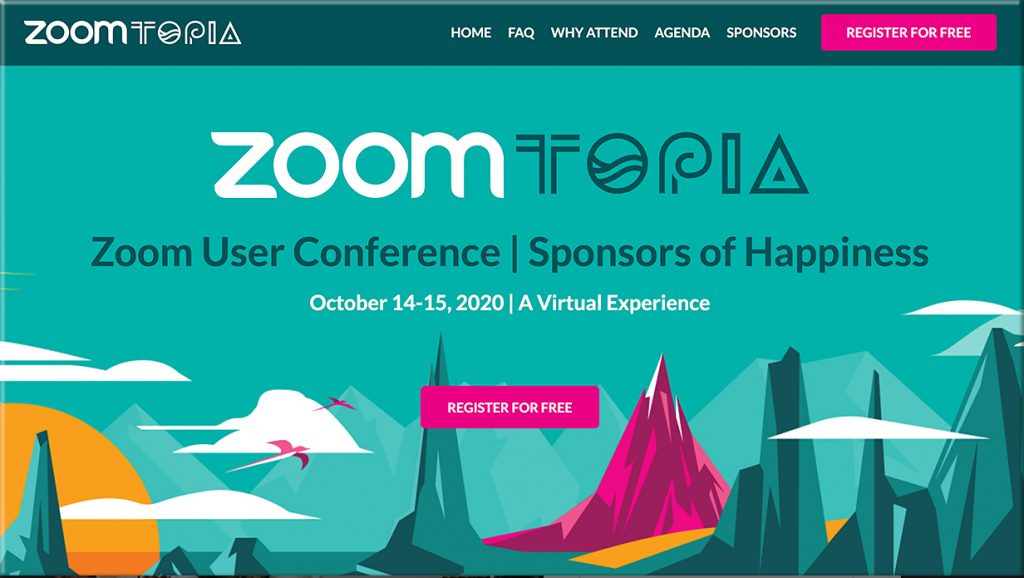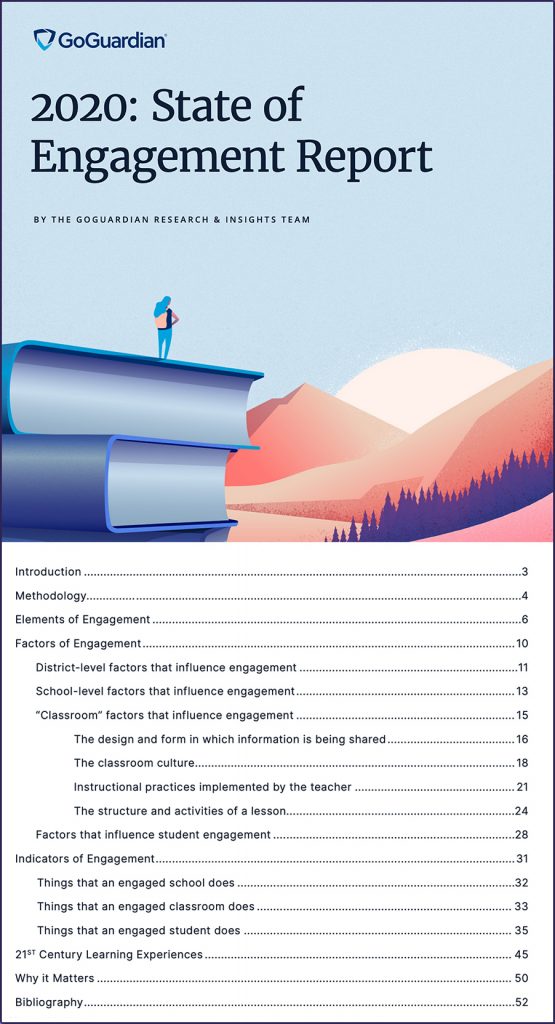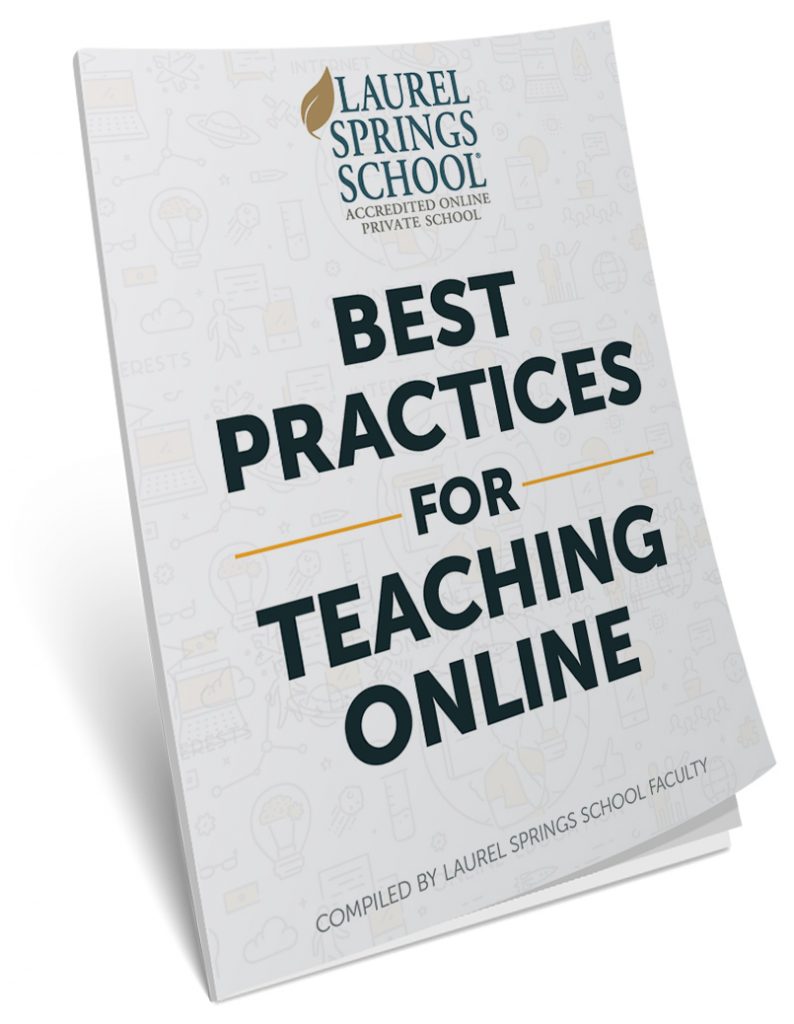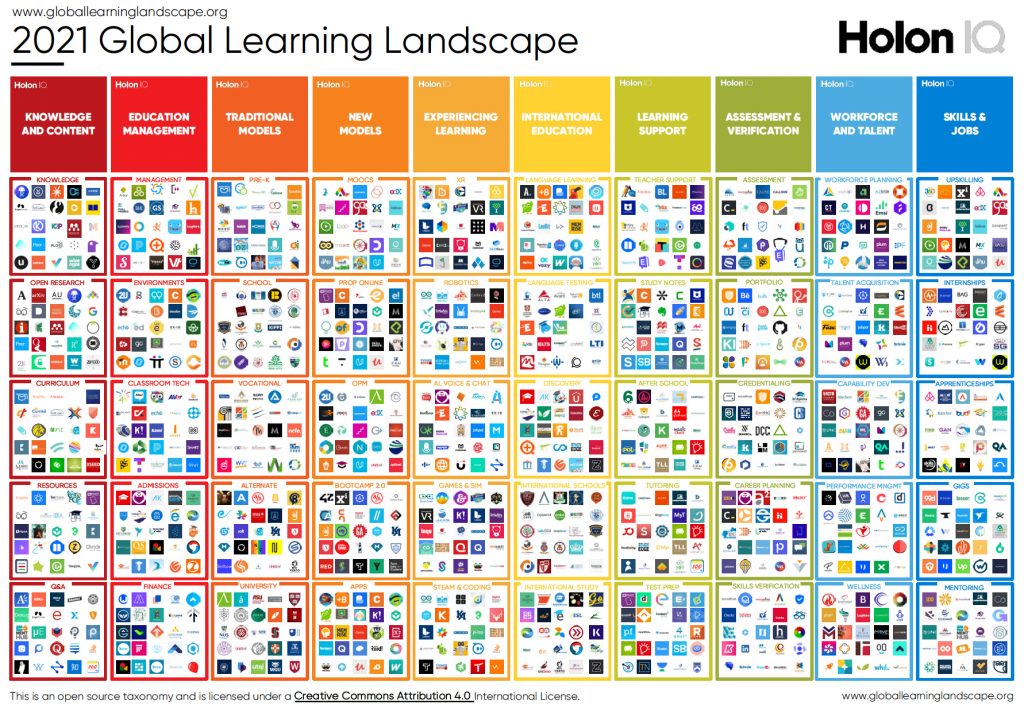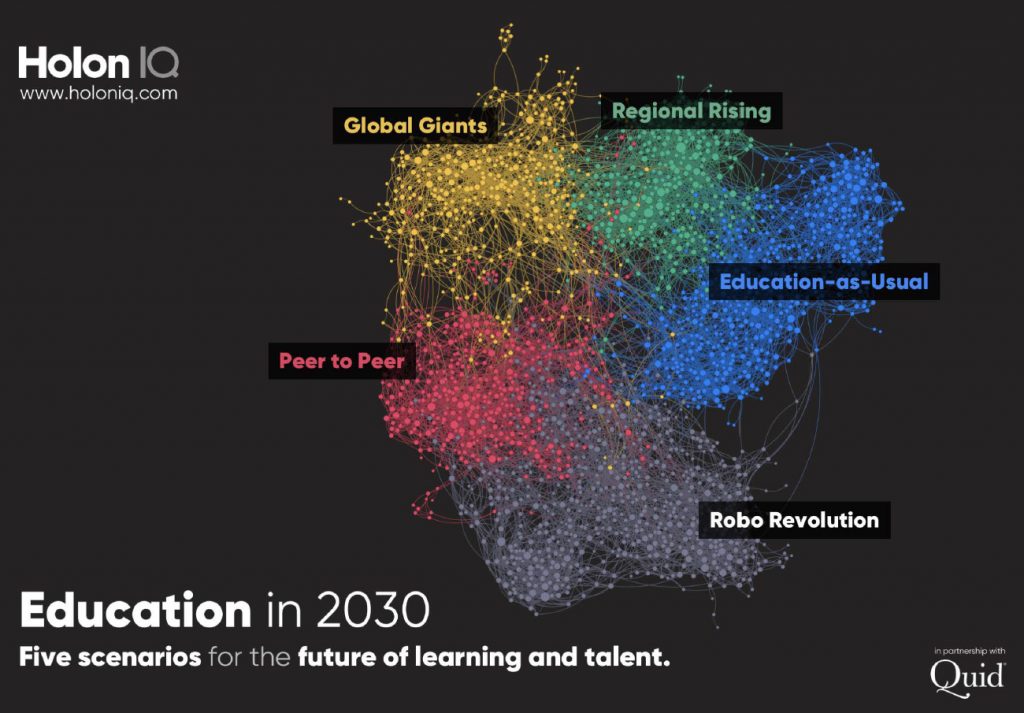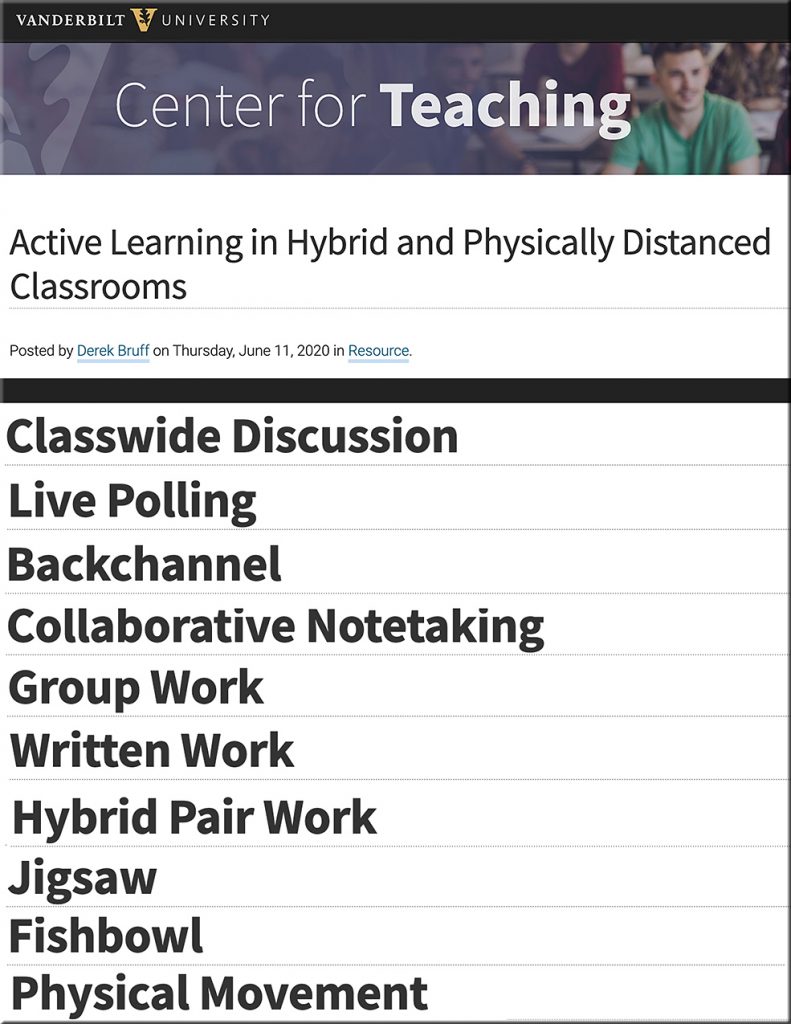Also see:
Zoom for Home – DTEN ME is an all-in-one personal collaboration device for your home office
From DSC:
Put yourself in the place of the conscientious/thorough learner. If you come into a course on Canvas & see Quizzes, Assignments, Discussion Boards, as well as other items listed on the Course Navigation Bar — in addition to the Modules selection — you might find yourself going to check many of those selections Every. Single. Day.
Graphically speaking:
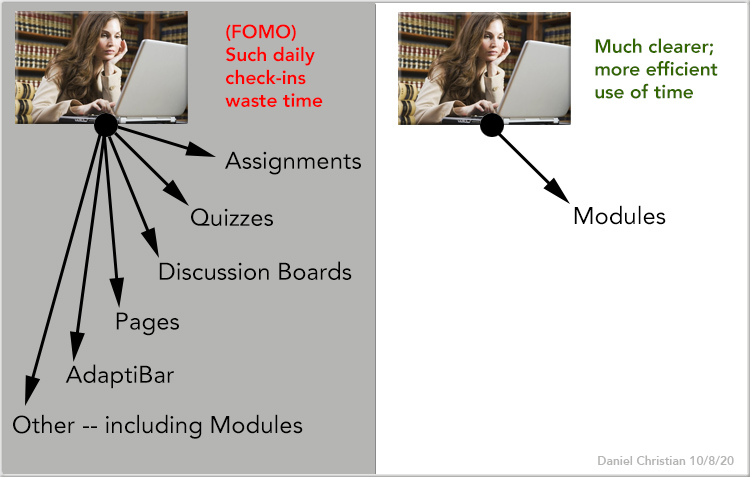
(DSC purchased this image from Getty Images)
From DSC:
By the way, this is why RSS feeds and feed aggregators were implemented. Have updates/content flow to the person, instead of the person wasting time trying to find what’s been updated on 100+ websites.
If your collaboration tool allows it, try this “Virtual ‘4 Corners’ Activity” [Honeycutt & Robinson]
From Honeycutt & Robinson:
Dr. Sheila Robinson shares how she uses the "4 Corners" activity in a virtual environment to break up long lectures & increase student engagement. https://t.co/MaLqEYybj0— Daniel Christian (@dchristian5) October 6, 2020
Per Dr. Honeycutt, also see:
3 winners for the GSV Cup: Abwaab, Prepmedians, and Ringbeller! Congratulations!! These three exceptional companies won out of over 550 applications.
First Place Winner – Watch the pitch below from Abwaab
Second Place Winner – Watch the pitch below from Prepmedians
Third Place Winner – Watch the pitch below from Ringbeller
From DSC: What if each learner/person/student could have a lifelong, cloud-based “tribute” site?
What if you could hire a career coach to sift through the tributes to find common themes?
From DSC:
I recently asked friends and family to help me celebrate a significant birthday for my wife by creating a tribute for her — using a service called Tribute.co. It was a fun, meaningful, relational experience — it opened the doors to some great communications.
Here’s a video that describes what a Tribute is (from the company of that same name).
So I put out potential suggestions for what I hoped that we could relay to my wife, and people contributed their videos. Then a person at Tribute edited the videos to come up with a highlight reel. They also presented to my wife all of the videos, not just the highlight reel.
That got me to wonder, “What if each learner had a cloud-based, lifelong tribute site that parents, guardians, grandparents, teachers, coaches, musical directors, pastors, friends, and others could leave encouraging and instructive messages on? Or when they note something that might be of use later on in terms of career selection, they could “jot it down.” For example:
- [First-grade teacher] “I noticed Anne that when we did the art projects, you were enthralled with any sort of creative endeavor or project. We almost lost you in another world!”
- [Family member] “Tony, I’ve noticed ____. Here’s something to consider for your future pathways. Would you be interested in exploring _____ — such as if we signed you up for some lessons in that area?”
- [Eight grade teacher] “Eloise, I saw that your engagement level skyrocket when we studied ____, especially when you did the project on ___.”
- [Basketball coach] “Chan, I appreciated your hard work in practice today. Keep up the good work and you will be a super player! You are fast, strong, and seem to have a competitive spirit about you. Consider making a workout chart and charting out the workouts that you do each day. Monitor your progress over time. As of today, here are some apps to do just that: ___.
- [Pastor] “So glad Amanda that you were able to join us on our youth group visit to ___. I appreciated your end-of-the-day reflections on the experiences of the day. I also appreciated your hard work helping others.”
- [Friend] “It was great horsing around on Garageband with you today Zach. I look forward to diving into iMovie next with you. Let’s create a movie for each other. You seem to have a very creative side to you.”
- [High school CS Teacher] “Keep up the good work programming Jeremy! I hope that you will consider going into some type of job that uses critical thinking, mathematics, problem-solving — perhaps it will be programming, perhaps it will be engineering, or something else.”
- [College professor/advisor] “You mentioned that you hate college to me the last two times we met. You don’t seem happy studying ___. Have you considered ____?”
- [Tennis coach] Remember to bend those knees…get low. Keep your eyes on the seams of the ball.”
The idea behind such a service would be to offer encouragement, feedback, (if carefully put) constructive criticism, a message that “I’m on your team”…and/or…”Here’s what I see in you.”
Additional functionality/options
- Contributors:
- Like Twitter imposes a limit on characters, there could be options to impose a time limit on the length of a video, ability to add more than one video, and/or set a limit on how many videos someone can upload
- If submitting a written piece, the option would be there to limit the number of characters and/or the word count.
- From learners themselves (to their own tribute)
- No time limit, no word count or character limit
- Would act like a multimedia-based diary/journal of learning
- Option to select whether might be worth re-listening to for career selection purposes.
How to Maintain Peace in Your School Pod — from nytimes.com by Katherine Cusumano
‘It’s important to approach this with the idea that there’s no ideal situation. If there were, we’d all be doing it.’
Excerpt:
Most disagreements, according to Waine Tam, a founder of Selected for Families, an online service that matches families and slearning pods with qualified teachers, “tend to come up front.” Having frank discussions early on might make finding suitable podmates and forming a pod more difficult — but they can also contribute to the long-term success of the group, if you approach them with sensitivity and flexibility.
DIY Checklist to Set Up Your In-Home Learning Pod — from families.getselected.com
Olympia parents form ‘co-op style’ learning pods to support kids without a price tag — from theolympian.com vby Katie Hayes
Unschooling: The New School — from risingkashmir.com
The term unschooling was coined in the 1970s and used by educator John Holt, who is regarded as the father of unschooling
- Unschooled kids pursue Self-Directed Learning as they are free to choose what they want to learn and who they want to learn from
- Unschooling is becoming a trend in urban India with Bengaluru and Pune leading the chart
Learning is entirely interest driven not dictated or directed by an external curriculum, by teachers or by parents - Socialization, development and isolation are some of the demerits of unschooling
- Unschooling community is not claiming that their education model is better than regular schools but say that the latter is fundamentally flawed
- An individual’s calibre is what makes him/her a creator of circumstances or a creature of circumstances
How to Engage Students (and Identify Them) — from thejournal.com by Dian Schaffhauser
Excerpt (emphasis DSC):
“The lessons that created the most engaging experiences for students often were a combination of opportunities that encouraged discussion, gave students learning choices and allowed students to create. These elements are immensely transferable both in the online and in-person classroom and can facilitate a positive learning environment, whether in a synchronous or asynchronous setting.”
The report is available with an email address through the GoGuardian website.
We’re All New This Year: How Advice for Rookie Teachers Can Help Everyone During Virtual Learning — from kqed.org by Kara Newhouse
Excerpt:
How can I teach music if the kids aren’t allowed to sing indoors? How will lag time affect group singing online? How will I make students feel seen and heard via Zoom? Those were some of the questions that elementary music teacher Angela Carpenter spent her summer trying to figure out. Though she would be entering her 15th year of teaching, it was like being new to the job. “No one has done this before. Even the teaching that we’re doing now is so vastly different than what we did in the spring,” she said, “because that was panic teaching.”
She’s not alone with that thought.
Personalized Learning Is Special Education and the Time Is Now — from gettingsmart.com by Karla Phillips-Krivickas and Rebecca Midles
Excerpt (emphasis DSC):
Educators have long recognized that the education strategies that work for students with additional needs would benefit all kids. These personalized learning strategies are, in fact, best practices for all students. Yet we continue to design our schools for the ‘average’ student. And then we wonder why there is so much frustration when we try to fit the proverbial square pegs into round holes.
You may assume the line between general and special education is clear, but it is quite blurry. Special education was never intended to be a separate system. It was designed to facilitate access to general education. Unfortunately, disability labels can now act as fuzzy barriers separating those who qualify for individualized instruction and those who do not. And this is the problem: the one size fits all approach to education doesn’t account for students’ differences or preferences unless they have a disability.
From DSC:
Exactly the experience our family has had as well. The K-12 education train stops for no one and moves quickly. To *^*^ with mastery. To *^*^ with the love of learning — or even the slightest liking of it.

Let us not come out of this crisis with the same systems and ways of doing things. Time for greater innovation, experimentation, and invention to take place!
[K12] Best Practices for Teaching Online — from Laurel Springs School; with thanks to The Journal for their article on this entitled, “While Schools Go Online, Here’s How Teachers Can Turn Uncertainty Into Opportunity” by Megan O’Reilly Palevich
Excerpt:
As I was reflecting on the magnitude of what is happening in K-12 education, I wanted to figure out a way to help the teaching community. It dawned on me that Laurel Springs has just over 150 teachers and almost 30 years of distance learning experience as a school. So, I asked our expert teaching faculty—what are your best practices for teaching online? I was overwhelmed by the responses and goodwill from my team. I am excited to share with you a guide to help with working remotely, communicating with students and families, and the best tips and resources for lower, middle, and upper school.
I hope that you find this information useful and share it with your colleagues. Feel free to pass it on and share—we are all in this together. As a parent, teacher, and leader, I appreciate you and all of the wonderfully creative things you are doing to do what you do best: TEACHING.
Please feel free to contact me for any additional support!
Warmest regards,
First time director, Lillian LaSalle’s award-winning, powerful documentary, MY NAME IS PEDRO, explores what public education meant to South Bronx Latino maverick educator, Pedro Santana, and what he, in turn, meant to public education. The film is also especially timely in this moment of national reckoning since the murder of George Floyd, subsequent protests and high attention being paid to public school parity.
Infectious in his optimism, Santana becomes one of the most influential public-school teachers and then administrators in the New York public school system after turning his troubled Bronx middle school, MS 391, around. He is unapologetic in his commitment to create change for kids, no matter the odds. When a glowing front-page New York Times article catapults him into the spotlight, he is recruited and then accepts a promotion to use his famed ‘out of the box’ and transformative practices to save a corrupt and divided suburban school district. But the political challenges there may simply be too great, even for the infallible Santana.
In order to continue his life’s mission that ‘every kid can learn’, (he himself was labeled ‘special ed’ as a child), he realizes that he must venture beyond not only the restrictive ‘four walls’ of the public education system, but also his own neighborhood, city and even his own country.
MY NAME IS PEDRO is a profound story of how one person actualizes learning and positive change in children, adults, environments and communities through an ‘impact’ ripple effect strategy that he has effortlessly perfected. The film is also an essential and timely reminder of the importance of great educators that exist within the infrastructure of our country’s public education system.
OFFICIAL SELECTION AND AWARDS:
Winner: Best Documentary, Golden Door International Film Festival
Winner: Spotlight on Documentary Award, St. Louis International Film Festival
Winner: Audience Award, Chicago Latino International Film Festival
Winner: Audience Award, Brooklyn Film Festival
Winner: Award of Merit, Impact Docs
Winner: Honorable Mention, Woodstock Film Festival
Official Selection: Women’s Filmmaker Showcase, BAFF
Official Selection: San Diego Latino International Film Festival
MY NAME IS PEDRO- Connect on Social Media:
- Instagram: https://www.
instagram.com/ mynameispedrodoc/ - Facebook: https://www.
facebook.com/MyNameisPedrodoc/ - Twitter: https://twitter.com/
PedroSantanaDoc
Award-winning documentary MY NAME IS PEDRO opened [yesterday] in virtual theaters in NYC on September 17 (Maysles Cinema) and will open in the following cities soon: LOS ANGELES on October 2 (Laemmle) with major cities to follow (on October 9) including: Philadelphia (Film Society), Minneapolis (Parkway Theater), Buffalo (North Park), Baltimore (Senator, The Charles), Vancouver (Kiggins Theater), Tucson (Loft), Cleveland (Cleveland Cinemas), Phoenix (Film Bar), Bellingham (Pickford Center). Winston Salem (Aperture Cinema), Tampa (Tampa Theater) and more.
Per Emma Griffiths (EG-PR), if you go to the link below, you can watch this film virtually and buy a ticket by clicking on the Tickets button next to Maysles Cinema — New York, NY:
Teaching in a Hybrid Classroom – What’s Working, What’s Not — from derekbruff.org by Derek Bruff
Excerpt:
Now that we’re a few weeks into the semester, I wanted to know what was working and what was a continuing challenge for instructors, so I convened a conversation on teaching earlier this week attended by 18 of my faculty colleagues representing a range of disciplines. They were excited to be back in the classroom this fall. “There’s a different energy when we’re face-to-face,” one of them said. We had a lively discussion via Zoom about hybrid teaching, including what made it exciting and what made it frustrating, and I wanted to share a few highlights here on the blog.
I waited a minute or two while the participants thought and typed, and when it was clear that most of the participants were no longer typing, I said, “Ready, set, go!” Everyone hit enter, and a slew of responses appeared in the chat at the same time. At this point, we all spent a couple of minutes reading through the responses. I selected a couple that were particularly interesting and called on those participants to elaborate via video.
Also see:
Active Learning in Hybrid and Physically Distanced Classrooms — from cft.vanderbilt.edu by Derek Bruff
If I’m standing at the front of the classroom with half or a third of my students in the room with me, but sitting six feet apart from each other and wearing masks, while the rest of my students are joining class by videoconference, what strategies might I employ to engage all of my students in meaningful learning?
I’m going to try to outline some options here in this blog post, drawing on ideas and resources from across the higher education community, but I would enthusiastically welcome additional approaches in the comments below or via Hypothesis annotations.
Derek Bruff
From DSC:
Yet another example of the changes occurring in the learning ecosystems out there.
COVID-19 Fuels Big Enrollment Increases in Virtual Schools — from edweek.org by Mark Lieberman
Excerpt:
Florida Virtual School’s enrollment is up 54 percent year over year for its individual online course offerings and 64 percent for full-time programs. Public schools’ online programs managed by the for-profit provider K12 Inc. have grown from 122,000 enrollments in fall 2019 to 170,000 a year later. Applications to Connections Academy, a virtual school provider owned by Pearson, are up 61 percent.
The Pennsylvania Cyber Charter School filled up months before it usually starts receiving the bulk of new applicants. An Oklahoma virtual charter school earlier this summer was enrolling 1,000 students a day. Enrollment in virtual schools is also up in Connecticut, Ohio, and Wisconsin.
What parents of special needs children should know about the school year — from mlive.com by Martin Slagter
Excerpts:
Embarking on a new school year can be daunting if you’re the parent of a child with special needs, even under normal circumstances.
But navigating a child’s Individualized Education Program or 504 Plan while he or she begins the year with remote learning, as many are doing this year due to the coronavirus pandemic, can add multiple layers of stress, education experts say.
This makes a parents’ understanding of their child’s learning experience more important now than ever, the experts say.
“Many students did not receive services and supports that were outlined in their IEPs (including) services related to specially designed instruction, speech and language, social work, occupational therapy and physical therapy. Now we enter the next school year with a high level of uncertainty.”









